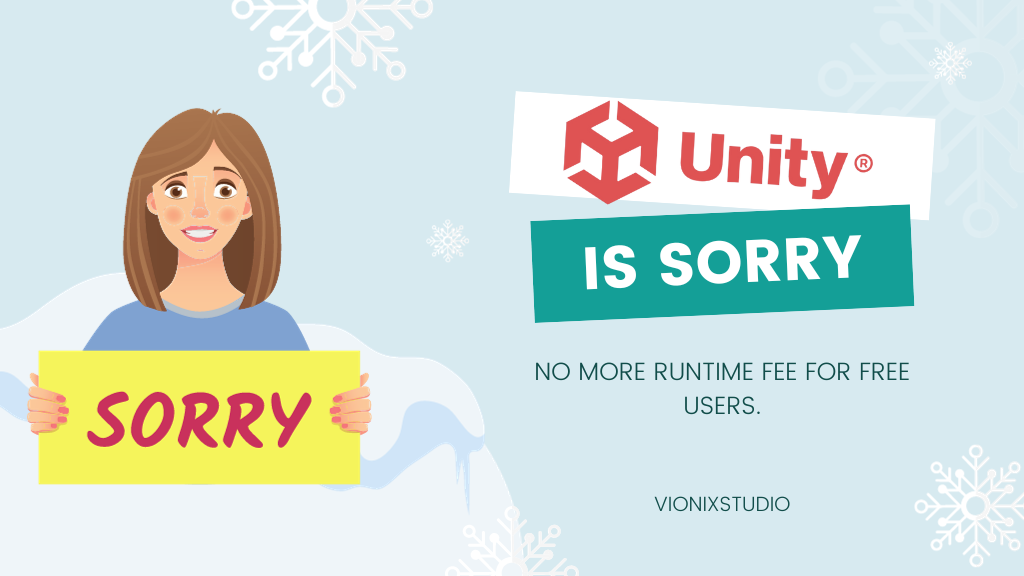Unity announced that there will be no runtime fee for Unity free users and Unity pro users have an option to choose between the runtime fee or 2.5% revenue share after crossing a revenue threshold of $1M/yr.
This is a welcome move by the community and would have proved beneficial to Unity if done in the first place. You can use our Unity fee calculator to find out how much is the revenue share or the runtime fee if your game is making more than $1M/yr.
Marc Whitten, the leader of Unity Create, which encompasses the Unity engine and editor teams, has issued a public apology to the Unity community and announced significant changes to their recently unveiled Runtime Fee policy. This unexpected move comes in response to mounting backlash from the Unity user base and many users switching to different game engines.
Whitten began his message with a straightforward admission: “I am sorry.” This acknowledgment set the tone for a remarkable announcement aimed at addressing the concerns of Unity’s passionate and extensive user community.
The initial Runtime Fee policy, which had caused unrest among Unity developers, was introduced with the intention of supporting ongoing development and investment in the Unity game engine. However, it ignited a firestorm of criticism due to its perceived impact on indie and smaller-scale game developers.
To mend relations with their community, Unity has made several significant changes to the policy. Notably, the Unity Personal plan will remain free, and the cap for revenue exempt for the paid plan will increase from $100,000 to $200,000. Additionally, the requirement to display the “Made with Unity” splash screen will be removed for Unity Personal plan. For games with less than $1 million in trailing 12-month revenue, there will be no Runtime Fee imposed.
Whitten also addressed Unity Pro and Unity Enterprise users, assuring them that the Runtime Fee policy will only apply starting with the next Long-Term Support (LTS) version of Unity, set to ship in 2024 and beyond. Existing projects and games that are already in circulation will not be subjected to these fees unless creators choose to upgrade them to the new Unity version.
Unity has also introduced flexibility by offering two options: a 2.5% revenue share or a calculated amount based on the number of new players engaging with the game each month. Unity users can select the lesser of the two amounts, making it less of a financial burden.
Whitten extended an invitation to Unity users to join a live fireside chat, where Jason Weimann will answer questions and provide further details about these policy changes.
This is a great move by Unity but many users are still complaining about the breach of trust and are not willing to accept the apology. We will know in time if users are willing to take a chance with Unity or will move on to other engines.
As Unity continues to evolve its business model, the broader tech and gaming industries will be watching closely to see how these changes impact developers and the Unity ecosystem as a whole. The pivot underscores the immense influence and importance of user communities in shaping the policies of tech companies and serves as a reminder of the power of collective voices in the digital age.


